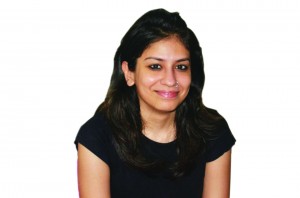As an Indian student in a foreign country, you might have to counter some unpleasant experiences. From missing spicy Indian curries to adapting to a new culture, four students share their experiences of settling in a foreign land
 EVEN TABLE MANNERS ARE DIFFERNT
EVEN TABLE MANNERS ARE DIFFERNT
“In the first few months of my stint abroad, I was swept over by the change in lifestyle. One always experiences the jitters in the early months – simple reason being the difference in the culture in which you grew up as a child to a carefree, yet more responsible life abroad. Everything is different. For instance, the basic table ethics in a local restaurant is entirely different from what you were taught back home. For most, even a change in weather makes them feel home sick. Being able to overcome such subtle problems is what we call survival. Eventually you learn to live.”
– Parameswaran T.G., University of West London, UK
 FOREIGN CURRENCY = MATHS OVERLOAD
FOREIGN CURRENCY = MATHS OVERLOAD
“One of the most challenging things about studying abroad was the money management. It was not only because of a different currency but also because I was handling a large amount of money completely on my own for the first time. (The previous experience with the meagre Rs. 400 per month pocket money barely counts.) Initially I used to perpetually convert SGD to INR in my mind. Eventually I understood the big mac equivalent. I stopped the conversion, and also started noting down my expenses. It really helps you spend less if you know exactly how much you are spending.”
– Megha Bhattacharya, University of Singapore, Singapore
 $15 FOR SABZI THAT TASTES TERRIBLE
$15 FOR SABZI THAT TASTES TERRIBLE
“I left India in summer and landed in New Zealand in winter. A world apart is the correct term. I found Kiwis to be very friendly and chilled out! On occasion a few Kiwis went out of their way to help me out. Queenstown, NZ did not have many Indians. I was probably one of the 20 in a population of 20,000. To each dollar I spent there as a student, my parents paid `42. Yes our currency sets us back a whole bunch. At times I paid NZ $15 for a below average curry or sabzi dish, and they don’t even taste half as nice. But trade off wise – it’s a fair trade. I didn’t go to New Zealand to eat and experience Indian cuisine. I was in New Zealand, it was time to experience their culture and eat what they ate. And every time I felt home sick, there always was a curry available at the Indian restaurant.
Irrespective, NZ gave me the opportunity to gain an educationand a qualification in something I love – adventure tourism. The experience was worth all the trouble that I went through. My advice: if you find something you really love and really want to study, then it will be worth all the bad tasting meals, cold climate and wacky humour you might suffer. Not just for yourself but your parents as well.”
– Samar Farooqui, Queenstown Resort College, New Zealand
 I EXPERIENCED ‘REVERSE CULTURE SHOCK’
I EXPERIENCED ‘REVERSE CULTURE SHOCK’
“Being from a modern Indian family from a city, I wasn’t scandalised to see a different culture in the UK. I had seen most of that in films, so I didn’t experience a big culture shock. Public display of affection between homosexual people was a little over the top, though. But I had talked to a lot of people before travelling and after exhausting all my questions on the course, cities, etc, I had asked about culture, so all that information was in the back of my mind. It was my first time living alone, but that becomes a part of your personality. Coming back to India and adjusting to life here was a bigger issue. After having mixed with people from all over the world, returning to just a certain set of people was difficult. In the UK, I was used to being in groups where one was from the US, one from Spain, one from France, etc. But in Kolkata, where I’m from, there are only two communities – Marwaris and Bengalis. And then I had to readjust to living with my parents again – following their instructions, routines, etc when I had become accustomed to my way of living and being answerable to no one. This ‘reverse culture shock’ was stronger than any culture shock I experienced in the UK.”
– Rashmi Punjabi, University of Warwick, UK
Volume 3 Issue 4




























